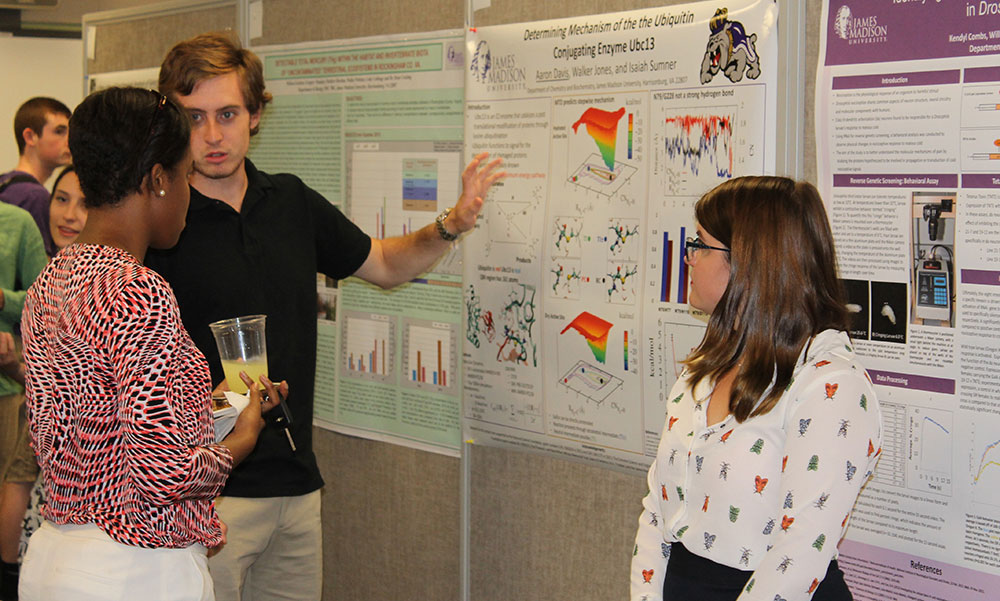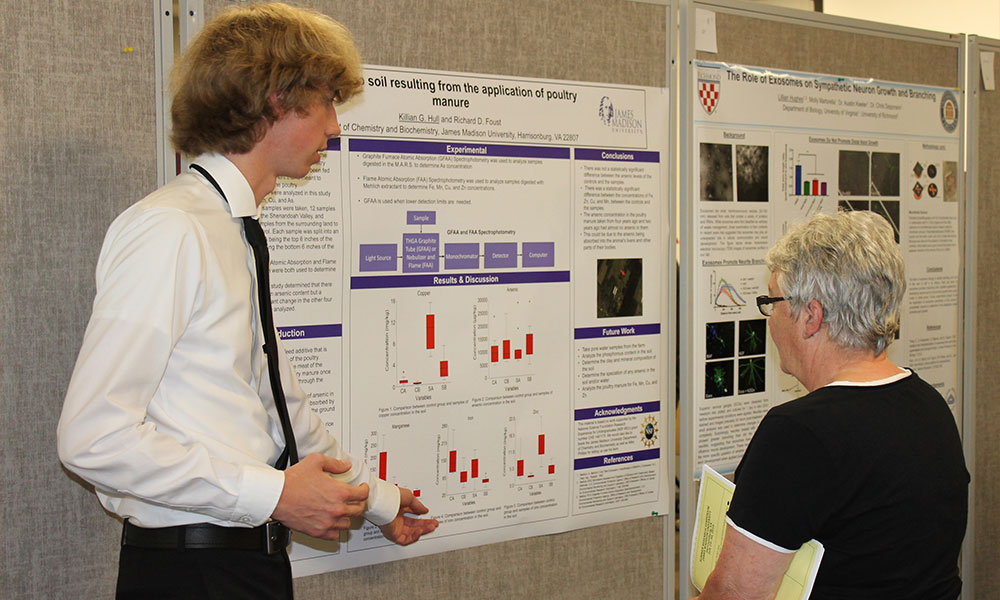Summer research binge
Students take on role of full-time scientists
Science and Technology
SUMMARY: In addition to JMU students and faculty, the summer program had participants from 17 other institutions around the country, including one student from California and a few from Wisconsin.
 |
| Chemistry professor Donna Amenta listens to a presentation during the poster session of the symposium that also featured oral presentations. |
Maxwell Cannon can tell you a thing or two about the "Forward Tagger," an instrument used in particle physics experiments at the Thomas Jefferson National Accelerator Facility in Newport News. For the last couple months, Cannon, a senior physics major from Richmond, has been working full time on upgrades to the equipment at the lab.
"When you can devote full time to a project, you become more invested in it," said Cannon, one of about 100 students from JMU and other schools across the country participating in JMU's summer research programs.
Cannon and other student researchers, who presented their findings Thursday and Friday at the JMU Bioscience Building, said the summer research enables them to put into practice what they learn in class and boosts their resumes for jobs and graduate schools.
"I learned a lot about working on a large-scale project," said Daniel Katleman, a senior from Springfield who is majoring in geographic science. Katleman and his partners, Elise Mazur, a senior geographic science major from Princeton, New Jersey, and Aaron Sloss, a sophomore engineering major from Warrenton, presented a poster on the social and environmental implications of the Atlantic Coast Pipeline.
Sloss said the research, which involved going to areas of Augusta and Nelson counties and interviewing residents about their views on the project, was unlike the classwork he gets in the engineering department.
Mazur, who wanted to do academic work or an internship this summer, said she liked being able to devote hours at a time to the project, something that's not possible during the school year.
Professor Chris Hughes, interim head of the physics department at JMU and an organizer of the symposium, said students are not the only ones who benefit from the summer research and, especially the symposium. "One of the great values for faculty is to hear these students present from other disciplines. We really learn what other faculty are working on by hearing these student presentations," he said.
In addition to JMU students and faculty, the summer program had participants from 17 other institutions around the country, including one student from California and a few from Wisconsin.
More photos and topics from the symposium are available on the chemistry department twitter feed.
